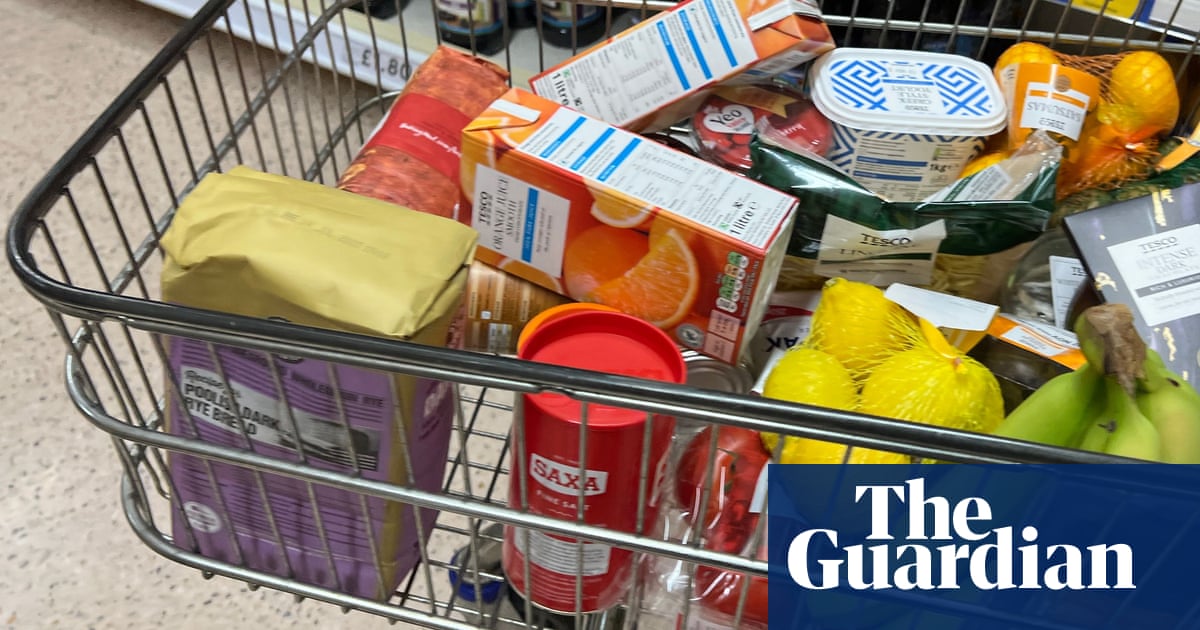Inflation in the UK jumped by more than expected last month to 3.5% afterdramatic increases in water bills, energy costs and council tax, official figures show.
A rise in employer national insurance contributions and a boost to the national minimum wage also put pressure on companies to raise prices by more than City analysts had forecast.
It was driven by surges in bills for gas, electricity, water and transport, part of a swathe of household cost rises that led to last month being dubbed“awful April”.
A spokesperson for the ONS said: “Significant increases in household bills caused inflation to climb steeply. Gas and electricity bills rose this month compared with sharp falls at the same time last year due to changes to theOfgem energy price cap.”
They added that water bills also rose strongly this year as did vehicle excise duty, “which all pushed the headline rate up to its highest level since the beginning of last year”.
The surge in the consumer prices index recorded by the Office for National Statistics (ONS) came after a decline in the rate over the first months of the year to2.6% in March.
TheBank of Englandis likely to rebuff calls for faster and deeper interest rate cuts after the growth in prices proved to be stronger than financial markets expected.
A poll of City economists had forecast a rise of 3.3% in April, while the central bank expected last month’s inflation rate to hit 3.4%.
Monica George Michail, an economist at the National Institute of Economic and Social Research, said inflation was likely to remain high for several months, forcing central bank to delay interest rate rises.
“Businesses are experiencing cost pressures amidst the rise in national minimum/living wage, employer’s national insurance contributions, and regulated price increases. Some of these costs will be passed down to consumers through higher prices,” she said.
“We therefore anticipate just one further interest rate cut this year by the Bank of England.”
Business groups said they were disappointed that cuts to interest rates were likely to be delayed. The British Chambers of Commerce (BCC) said rising cost pressures and higher household bills meant businesses were facing “a perfect storm”.
“While April’s jump was expected, the scale, to 3.5%, is concerning,” the group said. “With the national insurance hike, minimum wage rise and global tariffs,our researchshows 55% of businesses are expecting to put up prices in the coming months.”
Financial markets reacted by reducing their forecasts for interest rate rises. Meetings of the Bank’s monetary policy committee in June and August are not expected to cut rates, pushing back the next reduction, most likely from 4.25% to 4%, to September.
April’s rise was dampened by falling oil prices, which brought down the cost of petrol and diesel while heavy discounting of children’s clothes and women’s footwear restricted the rise in clothing costs.
Recent forecasts for energy prices have shown them falling, bringing down the price of the energy cap. Some analysts said this trend should limit the potential rise in inflation this year.
The Bank of England forecast earlier this month that inflation would average 3.5% during the summer and autumn.
Officials at the central bank cut interest ratesby a quarter point to 4.25%at their last meeting on 8 May but the vote by the nine-member monetary policy committee was split three ways, with two members voting to keep rates on hold while another two supported a half-point reduction.
Rachel Reeves said she was “disappointed” with the inflation figures. “I know cost of living pressures are still weighing down on working people.
The chancellor added: “We are long way from the double-digit inflation we saw under the previous administration, but I’m determined that we go further and faster to put more money in people’s pockets.
The shadow chancellor, Mel Stride, said: “This morning’s news that inflation is up – and now well above the 2% target – is worrying for families.
“Labour’s economic mismanagement is pushing up the cost of living for families - on top of the £3,500 hit to households from the chancellor’s damaging jobs tax. Higher inflation could also mean interest rates stay higher for longer, hitting family finances hard … Families are paying the price for the Labour chancellor’s choices.”
